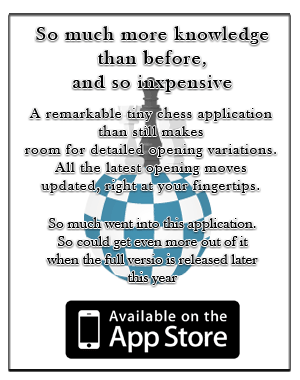DRAW
An outcome of a game or match involving two sides where no party wins.
In a game, this may be a result of an agreement by players, stalemate, triple repetition of a position or the so-called 50-move rule. Up to 1863 tournament games that were drawn had to be replayed but since Dundee 1867 the rule was replaced with a half point given to both players. In 1929 in the first rules of chess published by FIDE the rule required a minimum of 30 moves before agreeing to draw.
The requirement was abolished in 1952, reintroduced in 1962 and finally abandoned in 1964. More recently, in 2005 at the Super Tournament of Sofia, the players could only conclude a draw after a positive answer by the tournament director (Zurab Azmailparashvili).
There were some ‘specialists’ of draw games: In 1929 Maroczy drew all his nine games. Alberic O’Kelly drew all his nine games at Beverwijk in 1959, in 1971 Unzicker at Berlin draw all his 15 games. In 1999 at the Petrosian Memorial there were only 3 decisive games out of 90 games played and five players, Vasily Smyslov, Boris Spassky, Vlastimil Hort, Mark Taimanov and Yuri Balashov drew all their 9 games at an average of fewer than 20 moves.
The precursors were Georg Marco and Carl Schlechter in their match played at Vienna 1873 they drew all their 10 games. Among some greatest draws: Englisch-Blackburne London 1883 Halprin-Pillsbury, Munich 1900 Schlechter- EM. Lasker (7) WCC 1910 Alekhine-Capablanca (22) WCC 1927 Capablanca-BogoljuboCarlsbadbad 1929 Euwe-Capablanca, (8) match 1931 Spielmann-Lasker Moscow 1935 Alekhine-Botvinnik Nottingham 1936 Botvinnik-Euwe 1946 Bronstein-Botvinnik (18) match 1951 Fischer-Tal, Leipzig ol 1960 Gligoric-Tal, Bled 1961.



